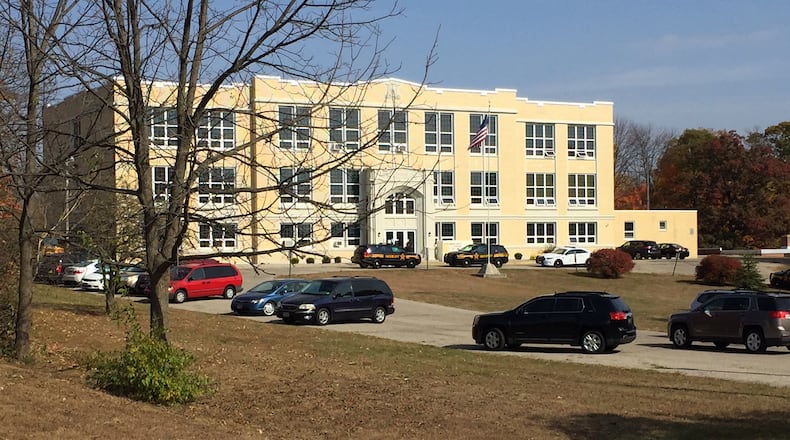Rhode Island-based biotechnology company Exponential Genomics, also called “Xenomics,” wants to repurpose the former Rockway Elementary School at 3500 W. National Road in Springfield Twp. as a research and development facility.
Trustees Tim Foley and John Roeder voted against the rezoning, with trustee Jim Scoby not present at the hearing.
Dayton-based attorney Chris Conard, representing Xenomics, said the company was eyeing the Rockway location due to its proximity to talent – the area’s colleges and universities – as well as the building’s numerous rooms.
The lab’s initial primary purpose was going to be COVID-19 testing. Modifications to the building were planned, but the company was also planning to maintain the “integrity” of the building, Conard said.
The company’s application to rezone the eight-acre Rockway property from a B-3 general business district and A-agricultural district to an O-2 office district for a medical diagnostics and research facility passed through the CEDA regional planning commission of Clark County and the Springfield Twp. Zoning Commission in January.
The company met recommendations made by both commissions, including items related to stormwater and septic, according to township zoning administrator Jennifer Tuttle. The property’s utilities would be serviced by county water, but there is no public sewer available at the property.
The company had planned to employ five to 10 people – scientists, technicians and researchers, according to Xenomics CEO David Preiner, who also attended Tuesday’s meeting.
The Rockway campus’s annex was planned for the diagnostic testing for the facility, and plans for the main building were similar to the current genomics lab at Wright State in Dayton, Preiner said, with space for equipment storage.
All but two of the many speakers of the night opposed the rezoning.
Susan Page, a Springfield resident and local university educator, said she approved of the rezoning for the research facility. She pointed to the prevalence of DNA-research and said the addition of a research facility to the area could bring opportunity to Clark County.
“This is the future of science,” she said. “This is the new wave of research.”
Reasons for opposition of the rezoning among attendees varied. Springfield resident Heidi Stevenson said that although she’s an advocate for the study of genomics, she feared the possibility of contamination given the former school’s close proximity to water sources was cause for concern.
“There needs to be water, there needs to be monitoring, there needs to be systems in place,” she said.
Others, like Cleve Gregory, who lives near Rockway school and whose grandchildren attended the former school, questioned the soundness of the 92-year-old school building proposed for the facility, particularly with air flow in the building and disposal of materials used for research.
“I just don’t think it’s a great choice for our community,” he said.
Conard noted that very little water waste would be created at the facility, as small amounts of serum-testing would be performed at the center.
The former Clark-Shawnee School District building closed last June due to the district opening the Clark-Shawnee Elementary School. The building was sold to Xenomics for $394,000.
“We’re going to have to sit down and re-evaluate,” Conard said after the public hearing ended Tuesday evening.
About the Author

